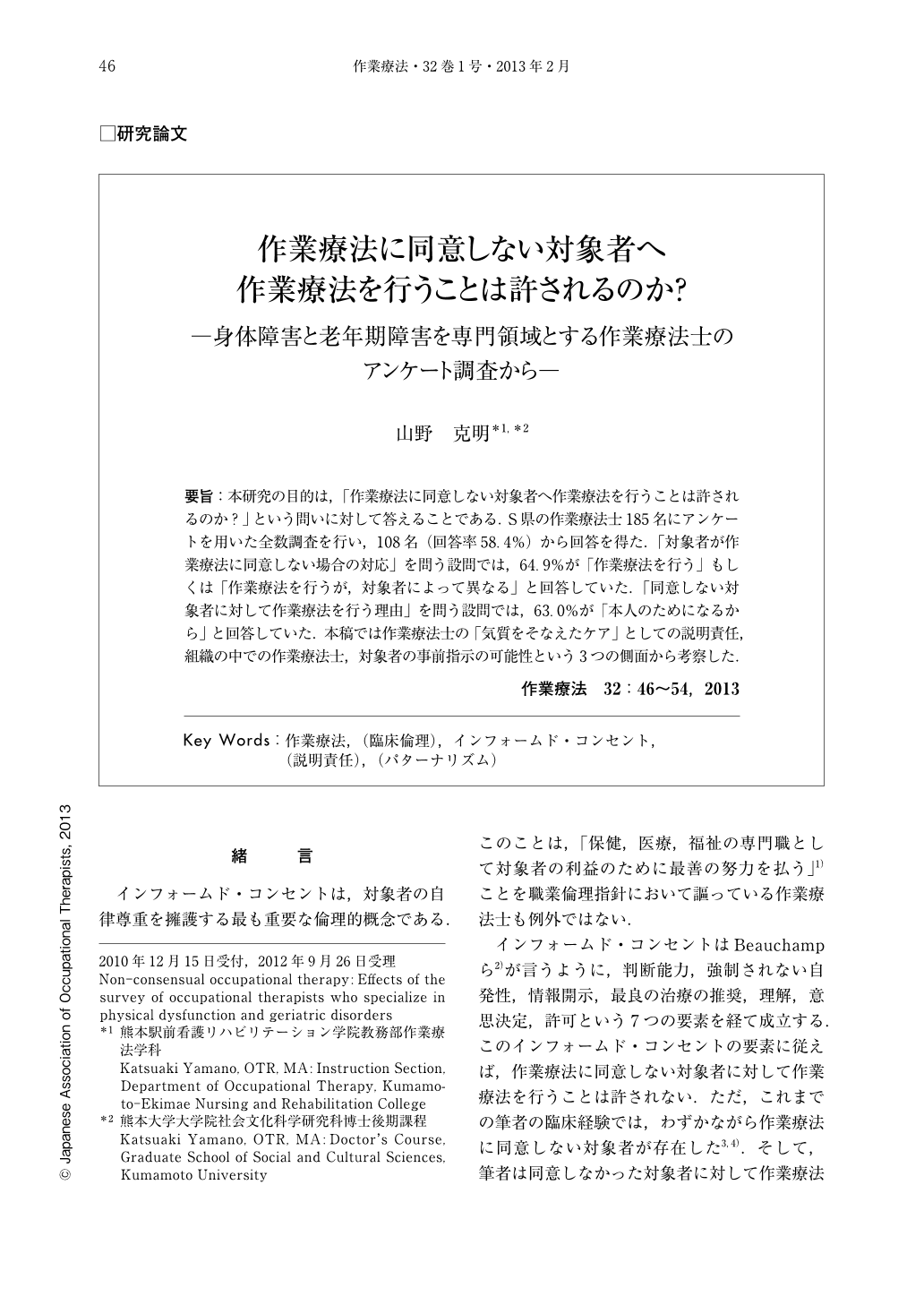Japanese
English
- 販売していません
- Abstract 文献概要
- 1ページ目 Look Inside
- 参考文献 Reference
- サイト内被引用 Cited by
要旨:本研究の目的は,「作業療法に同意しない対象者へ作業療法を行うことは許されるのか?」という問いに対して答えることである.S県の作業療法士185名にアンケートを用いた全数調査を行い,108名(回答率58.4%)から回答を得た.「対象者が作業療法に同意しない場合の対応」を問う設問では,64.9%が「作業療法を行う」もしくは「作業療法を行うが,対象者によって異なる」と回答していた.「同意しない対象者に対して作業療法を行う理由」を問う設問では,63.0%が「本人のためになるから」と回答していた.本稿では作業療法士の「気質をそなえたケア」としての説明責任,組織の中での作業療法士,対象者の事前指示の可能性という3つの側面から考察した.
The purpose of this study is to reply to the question “Can Occupational Therapists Practice Occupational Therapy on Clients without Consent?” The author surveyed 185 occupational therapists by questionnaire, and received answers from 108 therapists, a response rate of 58.4%. When faced with the question of whether or not they would conduct occupational therapy without a client's consent, 64.9% of therapists answered “Yes” or “On a case by case basis”. When asked the reason why they would practice occupational therapy even without a client's consent, 63.0% of therapists answered “For the client's own good”. The results indicate three points of view for occupational therapy: accountability, organization and advance directive.

Copyright © 2013, Japanese Association of Occupational Therapists. All rights reserved.


